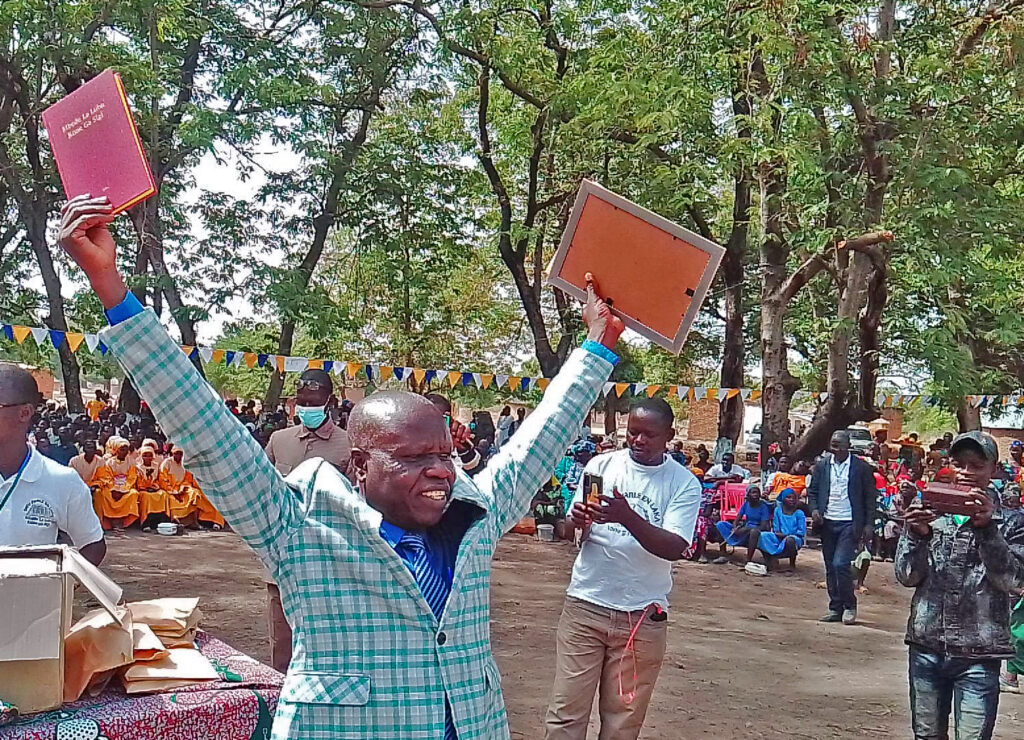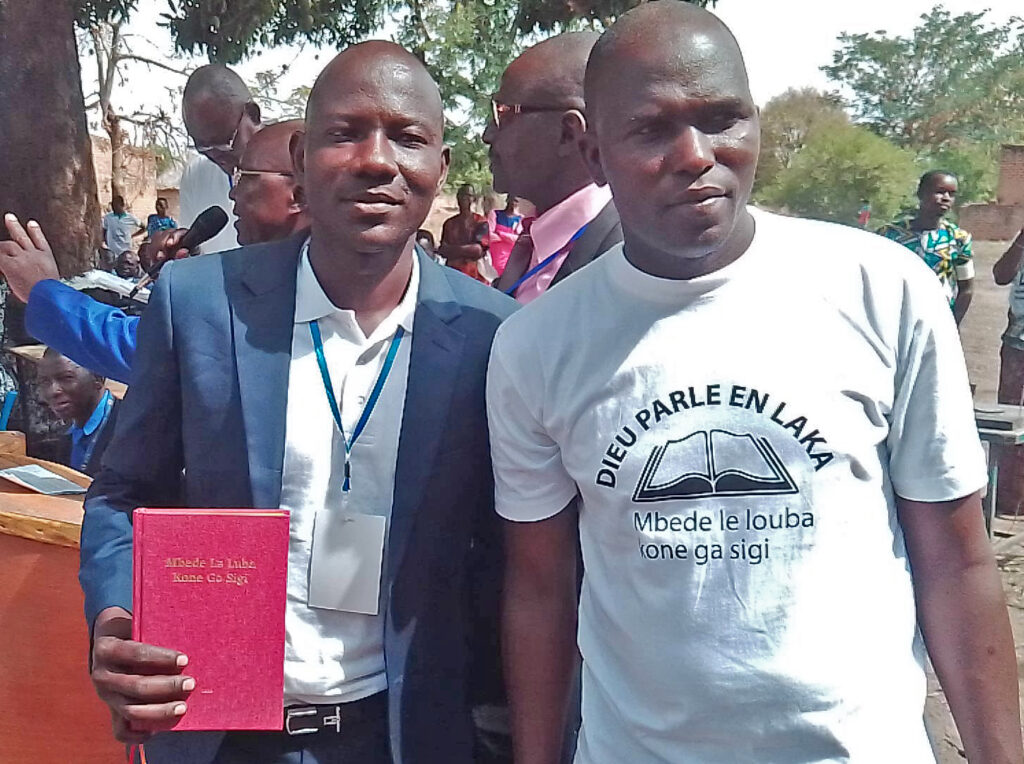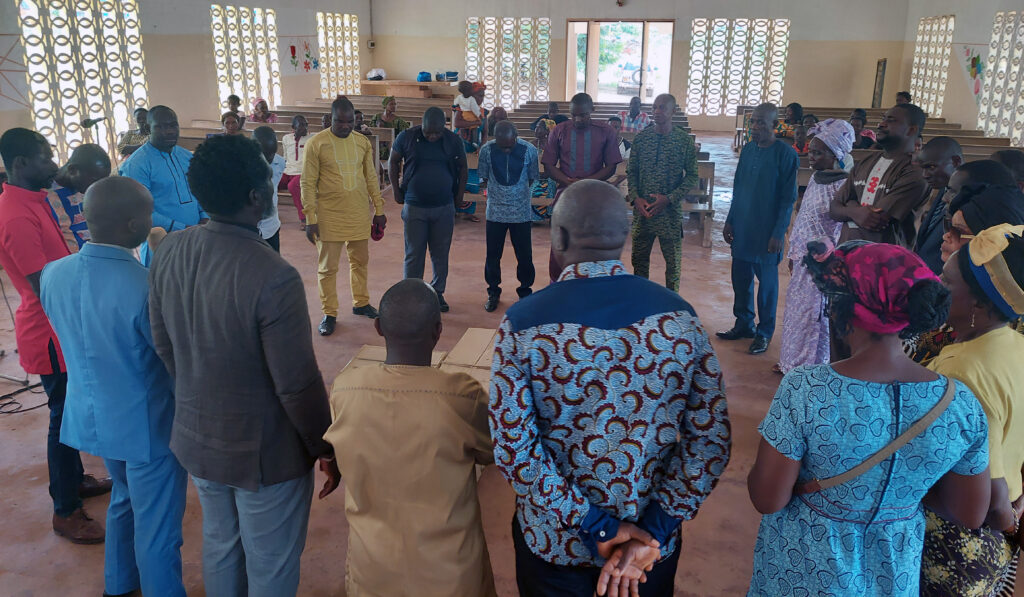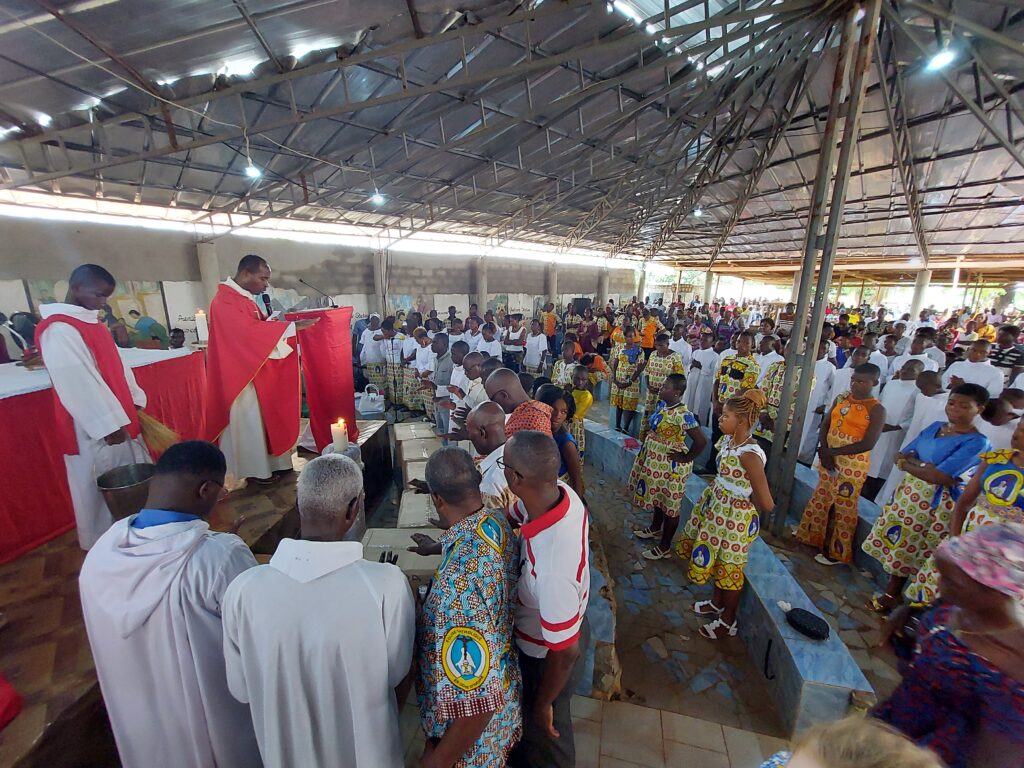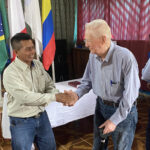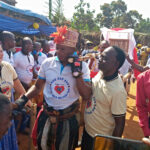One Touch of a Button
Can a small, hand-held device really help save someone’s life? A personal locator beacon did just that.
John and Marjo Brownie have been living on the island of Mussau, Papua New Guinea (PNG) off and on for the past 18 years, translating the New Testament into the people’s local language. For most of that time they could fly in and out of Mussau, but more recently they’ve needed to travel by dinghy to an airstrip on a neighboring island to catch a flight to the mainland.
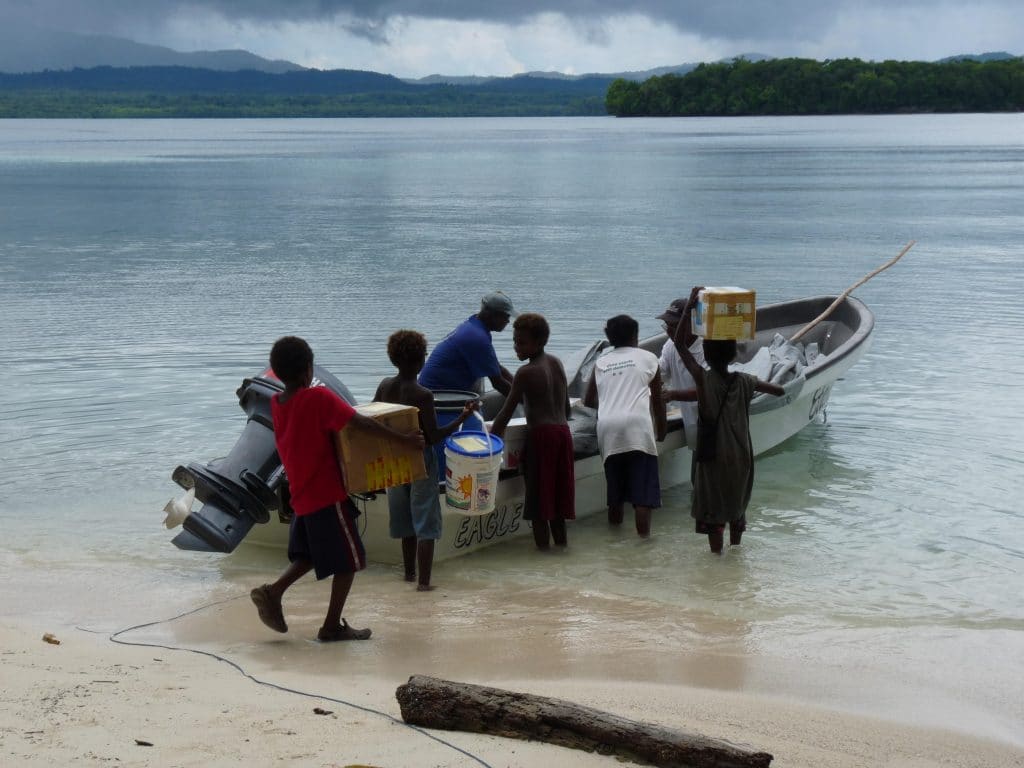
After completing a month of translation work, the Brownies set off at 8:30 a.m. in a 20-foot boat, accompanied by four Papua New Guineans. As they traversed the waters from Mussau to Emirau Island, the winds and waves quickly increased. An hour after departure, two large waves swamped their dinghy, sinking the small craft. Its occupants were now at the mercy of the waters of the Pacific Ocean.
With the help of the boat driver, John and Marjo found their personal locator device—received from JAARS years ago—and sent off a satellite signal. That signal contained the latitude and longitude location and identification number.
The signal zoomed to a satellite, which transferred the signal back to earth, either to a U.S. Coast Guard or U.S. Air Force Rescue Center. The signal’s information identified JAARS as the registered owner of the beacon, so the coast guard or rescue center notified JAARS of the emergency. We then notified called the office in Ukarumpa, Papua New Guinea. The administration there jumped into action; their aviation team dispatched a plane for a search and rescue mission. Others studied the winds and tides. Concern for the Brownies circulated electronically on the group’s internal prayer board and dozens of people began praying.
Meanwhile, Marjo had become separated from her husband in the ocean swells. Three younger men from the boat stayed with her and offered reassurance through six hours of swimming and floating on cargo in the open ocean. When Marjo depleted her strength, Donny, a faithful friend, encouraged her to hold onto him as he swam the last hundred meters to shore.
Once they reached shore, a young mother invited Marjo into her home and offered her a hot drink and dry clothes. The men walked across an inlet and one found the driver of the only truck on the island. He drove them to the clinic.
All this time, John still drifted out on the open ocean, along with an older man who had been their faithful friend and co-translator since they first moved to Mussau. Since he grew up playing in ocean waters near Sydney, Australia, John was able to support his older friend as the two men floated in the waves, holding onto boards from the wrecked boat.
Later that afternoon, John and his friend reached the reef in front of a village. A boat came out to pick them up.
Meanwhile, the crew of the rescue plane searched for survivors in the choppy waves. Not finding anyone, the pilot landed on Emirau Island. At the airport, the crew met up with John and later met Marjo at the clinic. They radioed to their children and co-workers in Ukarumpa the happy news of their safety.
God used one touch of a button to alert the right people to John and Marjo’s location and emergency so they could offer any assistance needed.

Currently 250 active beacons serve mission workers in 21 different countries. The Maritime Department at JAARS updates and maintains these beacons. According to our former maritime director, “Since we began using these beacons several years ago, we have not lost anyone traveling in the difficult and diverse waters that cover the earth.”
Would you consider a gift to Maritime Solutions? Your gift will help us continue providing beacons and other safety equipment free-of-charge to mission workers so they can safely translate God’s Word across the seas.



























































